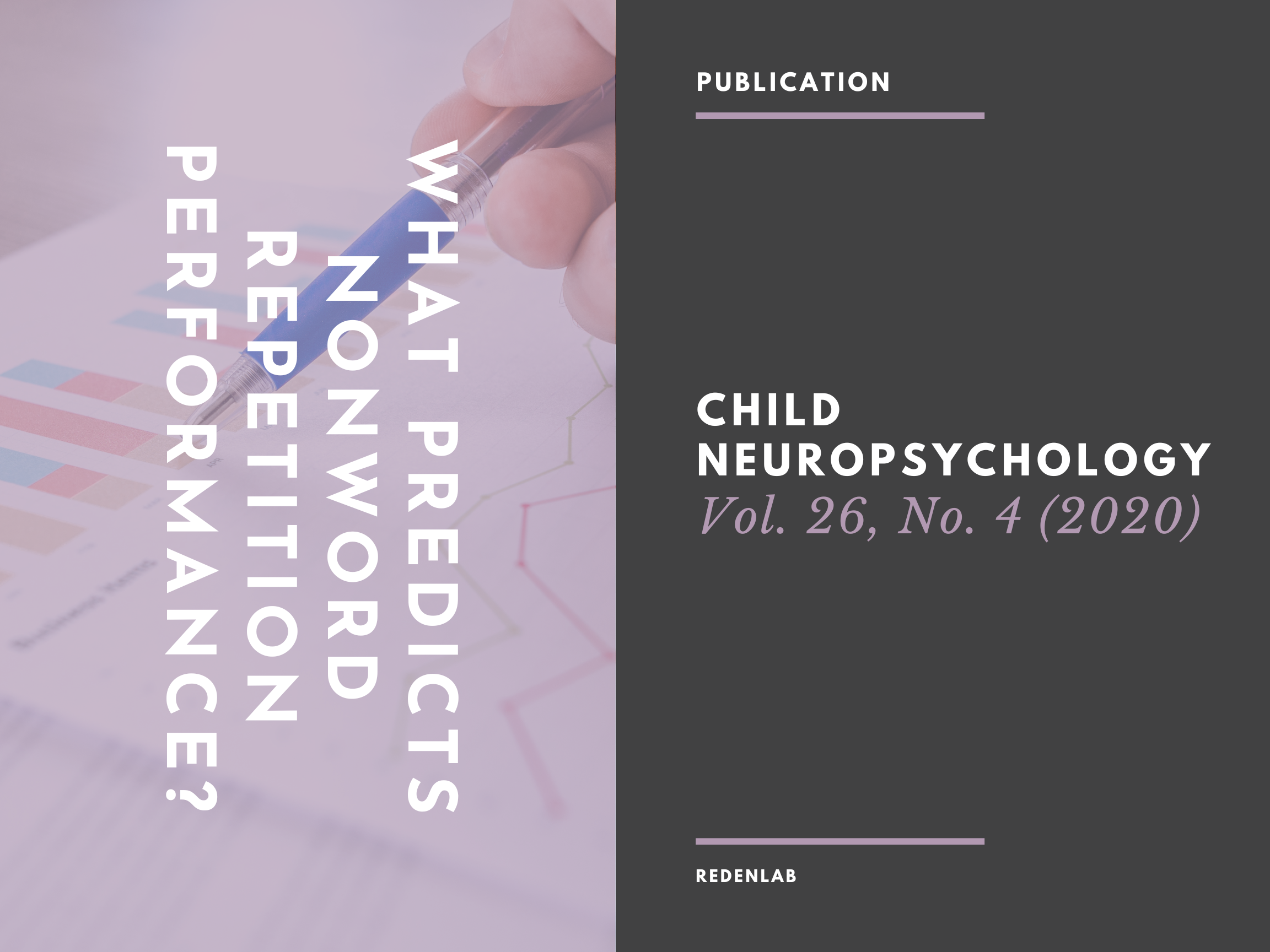What predicts nonword repetition performance?

Despite the widespread use of nonword repetition in child neuropsychological research and clinical practice, the specific cognitive, linguistic and motor processes that contribute to variability in performance are unclear. The aim of this work was to determine the role of phonological memory, word reading, oromotor sequencing, and oromotor control on nonword repetition performance in the context of children’s speech and language abilities. Ninety one children between the ages of 9 and 11 years, with a broad range of speech and language abilities participated in the study. Hierarchical regression was used to a) evaluate the contribution of phonological memory, word reading, oromotor sequencing and oromotor control to nonword repetition and b) determine whether speech and/or language ability moderated the relationship between these specific skills and nonword repetition performance. Results showed all four predictor variables were related to nonword repetition performance, accounting for 59% of variance. The variable with the strongest association with nonword repetition was phonological memory, followed by oromotor sequencing ability, word reading, and oromotor control. Contrary to expectations, neither speech nor language ability were significantly associated with the degree to which these specific skills were drawn upon to perform the nonword repetition task. These findings underline the multidimensional nature of the nonword repetition task and provide further evidence of the major contributions made by phonological memory, word reading, speech sequencing and control to performance on this task. Further, findings suggest that speech and language ability, as measured here, do not significantly influence the skills employed for nonword repetition performance.
Click here for more details
